Interview with Curt Hansen: Broadway Performer and Teacher
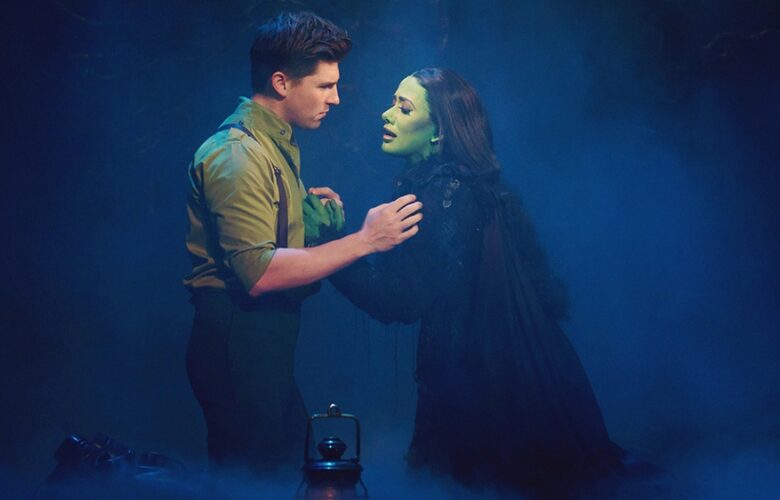
With theWicked movie release right around the corner, I reached out to a former Fiyero, Curt Hanson, from Broadway’sWicked to discuss his time on the Broadway show and understand how we went from a small-town boy chasing big city dreams to becoming a triple threat in the Big Apple. Now retired from performing, Curt Hansen continues his passion for the performing arts by teaching new up and coming young dancers while traversing being a parent after 2020 forced him to see if he wanted to keep dancing through life.
Drew Janine: What was the first show you danced in?
Curt Hansen: “So, I remember when I truly was like ‘I enjoy dancing’ and also I’m not a dancer at heart, it was probably when our community theatre didAnything Goes. I was maybe 13 or 14. There was this really big tap number in there but it also gave me confidence because I was like ‘oh I’m actually decent at tap but I have no technical training’. I don’t even know what year that would have been, maybe 1998 or 1999. But then in high school, my freshman year, I got cast inWest Side Story which is a lot of dancing. So I thought I really need to have more dancing shops to be able to execute this.”
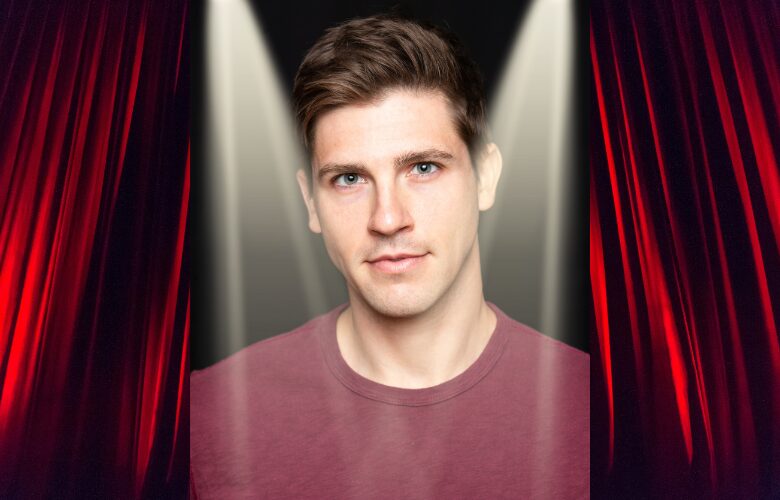
DJ: Is that when you started taking dance classes?
CH: “There wasn’t really much in the way of dance classes where I’m from – I’m from a small town in Wisconsin. I just kind of learned by doing shows and then when I finally went to college, I had to take something like an intro to jazz. That was kind of the first time that I had some sort of technical training. It was reverse engineering what I should have learned earlier on. So probably my first year in the BFA program in college was when I started learning what dance actually was.”
DJ: After receiving so much of your training later than most of your colleagues who have been on Broadway for years, how does that make you stand out from them?
CH: “I think at that point I was kind of playing with house money so to speak. I thought ‘well I’m here’ and I was able to go for things without overthinking it as much and without judgement… I wish I would have had that technical training earlier on because when I was cast inHairspray on Broadway I had to learn all of the choreography in probably 3-4 days. I was so stressed. First of all, learning and memorizing it is a skill in and of itself. Then I was learning how to negotiate and finesse it in front of thousands of people every night on stage. I learned so much doing that show. I started taking a dance class here and there to help me pick up choreography.”
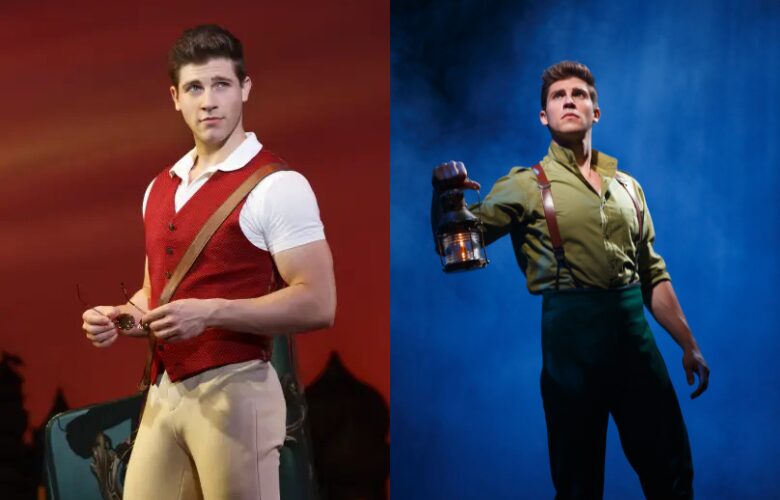
DJ: For most of your life, you mostly focused on becoming a better dancer so how did you become a triple threat?
CH: “I didn’t really start singing until I was about 12 then I started doing community theatre. I loved doing musical theatre and Broadway shows and I realised there was no world where it was just singing or just singing and acting. You have to sing, act and dance. I learned early on that it’s more important to be willing to go for it and be willing to try to do it because that is probably 85% of this industry. That way you at least show some sort of promise and coachability then that will set you apart from 90% of people… I was really lucky to get paid to be in shows and learn along the way because not everyone is given that luxury. AfterHairspray I had to do some kind of movement in every show I got cast in:Next To Normal,Wicked, and so many others. Just being open to it and having physicality and movement opened me up to so many more opportunities. ”
DJ: How do you handle the industry and teaching while being a parent to a toddler?
CH: “I’m fully retired and I don’t perform anymore. It is tough. It’s kind of refreshing to be on the other side of it now trying to help kids like pre-professional dancers get there to their big moment. You do get a little bit jaded and think ‘I’ve been doing this for 14 years – I’m out’. Having been there was so special and reflecting back on it is really inspiring to help people get there. That’s been really worth it to me. Anything is tough with a toddler but at the end of the day if I do get a little stressed, we’re singing and dancing. We’re changing lives in a different way. Keeping that perspective has really helped.”
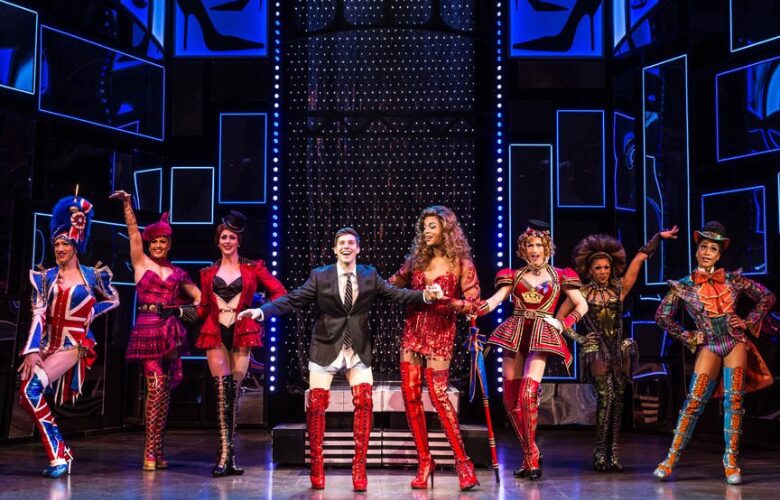
DJ: Only having been retired for a few years, would you ever go back to performing?
CH: “I would say that I’m open to it if the right thing comes along. I’m pretty good friends with Nathan Tyson who wrote The Great Gatsby with his wife. They reached out because they were looking for an understudy for Gatsby before they opened. And I considered it. Ultimately it didn’t work out. I love him, the show would be cool, but I like to think of it as it’s on my own terms now rather than being on their terms – which a lot of it is on their terms. I think that’s how I should have approached it from the start because it’s your life.”
DJ: Being from Wisconsin, your story reads much like a small-town-boy moved to a big city to follow big dreams. How does that stereotype affect you and your career?
CH: “I worked pretty steadily and there were moments where it did get tough but I didn’t want to do anything else. I think it’s telling now that I’ve stopped acting and I still have a hand in it. I know I have a lot of knowledge and experience that I want to share with up and coming performers.”
DJ: Some major roles you have booked are Link Larkin Understudy in Hairspray, Gave from Next To Normal, Charlie Price in Kinky Boots, and now Fiyero in the Wicked Tour. Which of these roles was your favourite to play and why?
CH: “They all had different levels of fun for different reasons but having played Fiyero for so long I loved that. I think it made me a more confident person because I had to project confidence on stage and all that. From the first time I played Fiyero to the last, it was a span of 8 years. I did 3 different companies of it and I would always have a break in between so when I came back I was levelled up and learned more. Everytime I came back to it, I added a little bit more and it just became so in my body and so a part of me that it ended up being every choice that I made was the right choice because I was him.”
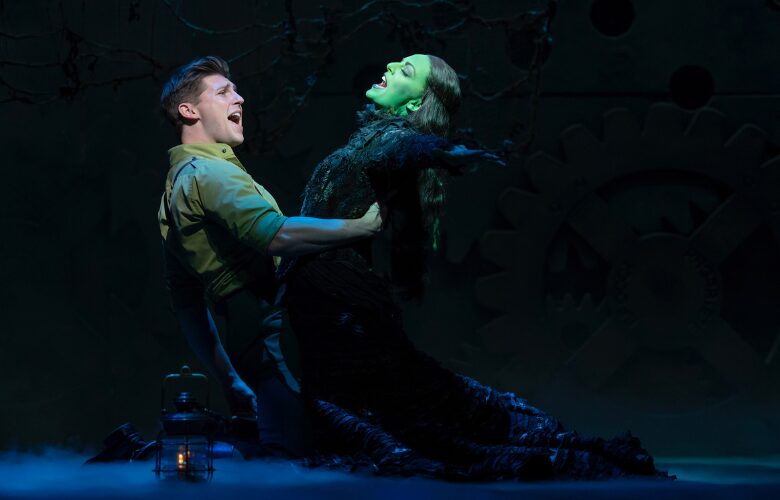
DJ: What is something you tell your students to help get them to where you were on Broadway?
CH: “I always tell my kids that they need you as much as you need them. Without us they wouldn’t have a show. Focus on why you are there and why you want to be there. All you can control is what you do in the audition and how you’ve prepared for the audition. And at the end of the day there’s going to be those castings where you do absolutely everything you could and it still didn’t work out. If you do the work and you really put your all into it, then that’s all you can do. The rest is literally out of your hands.”
All photos provided by Curt Hansen.
Back to Home
Editor's Note: At StageLync, an international platform for the performing arts, we celebrate the diversity of our writers' backgrounds. We recognize and support their choice to use either American or British English in their articles, respecting their individual preferences and origins. This policy allows us to embrace a wide range of linguistic expressions, enriching our content and reflecting the global nature of our community.
🎧 Join us on the StageLync Podcast for inspiring stories from the world of performing arts! Tune in to hear from the creative minds who bring magic to life, both onstage and behind the scenes. 🎙️ 👉 Listen now!
